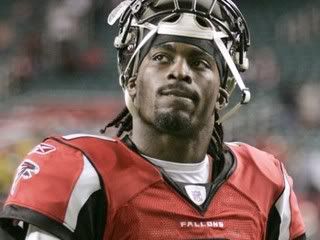I debated over doing another one of these, since I'm trying to make my blog a little less introspective and a little more focused on user-friendly content these days. However, I'm going ahead with it anyway. Dreams can be entertaining, and who knows, maybe some of my dream-interpretation technique may be useful to someone.
Also, the one I want to tell you about started out with my "dream camera" looking at me while I said, "Hey, I had the craziest dream, and I wanna tell you about it." If my unconscious self could possibly send a clearer signal that this was a dream that would do me good to write down, I can't imagine what it would be.
A parenthetic note, on a different dream: This very sleep-time I had a dream where I found a dagger. It was quite possibly the most excellent little knife I have ever seen. I want to rave on and on about it and go into great detail, but since it was my dream, the details probably don't make a difference. The important thing is, unconscious me now has access to (but is not actively carrying, even in its special belt-mounted sheath) whatever personality component is symbolized by the most perfect and wonderful personal edged weapon that could possibly exist. This counts as a very encouraging development, since in the past I've had a lot of dreams where I didn't have a weapon when I needed one, or found things that ought to have been weapons but were flimsy or broke easily. Hooray for unconscious me!
The one I want to tell you about happened three sleep-times ago. (I say sleep-time instead of night, because I tend to sleep at odd hours, especially on weekends or, as now, when I'm not working.) To recap some of the basics: My dreams, when I remember them, come in three acts. Each act is located in a dream landscape which represents a progressively deeper area of my personality. So what happens in the third act would refer to something much less accessible to my conscious mind than what happens in the first act. Light levels in dream areas are also an indication of conscious accessibility: a really dark place would represent a part of myself I either don't think about, or for some reason can't think about.
Act One.
After the little introduction bit described above, I found myself standing on a narrow stone ledge in an underground chamber with very, very high walls. The walls and floor were made of dark grayish-green stone blocks, like a castle or fortress you might see in a videogame. Light shone in, from the room I'd started out in, through something like slit fortress windows. But the ambient lighting in the place was just dim enough that I mentally tagged it "spooky ambience". I didn't
feel spooked, but I knew I was supposed to. As I stood there on the ledge, metal bars extended down from the ceiling on either side of me. They would have trapped me there, but I saw them coming and moved quickly out of the way. As soon as the bars clanged against the ledge, jets of flame came down from the ceiling, right where I would have been. I breathed a sigh of relief, grateful for the quick thinking.
Then I was down on the floor, walking around in search of an exit. The dungeon was composed of several hallways, with no apparent pattern to their arrangement. Every so often, when one of the hallways dead-ended, there would be a large metal structure extending down from the ceiling to the floor. These machines looked a bit like square ventilation ducts painted dark grayish-green, but much sturdier and more massive. They were widest at the bottom, twenty or so feet across, and narrowest at the top, maybe ten feet across. Each machine was "on", though there weren't any visible lights or dials or anything. I hoped there might be an exit on the other side of one of these, so I grabbed ahold of some lever near the bottom of the mechanism and pulled it up. It lifted easily, like a massive metal door with a counterweight. But instead of an exit, there was a prisoner inside, up on the ledge--a dangerous prisoner. Like Hannibal Lecter, but without the good doctor's cultured refinement and capacity for restraint. Still hoping there was a door in there somewhere, I kept going around the halls and opening up the machines, releasing prisoner after prisoner. Eventually I stopped, since I realized I was getting nowhere and there were a few too many dangerous lunatics around for my taste. So the last couple of machines never got opened up.
There was a weird scene here at the end of Act One where I stood near a door in the top of the wall that opened into a place I thought of as "Iraq", where the sunlight was blinding. I talked with some guy on the other side of the door, but I knew for some reason it wasn't an exit, that it was a fake place and it wouldn't do me any good to go that way, so I decided to stop wasting time and get on with the search.
Act Two.
All kinds of crazy, dangerous prisoners were wandering around. Fortunately for me, one of them was the wicked awesome hot fascist lady who'd outwitted me back in the
pointless dystopia dream. (Long story short, she is either my inner self or spirit guide or some other thing that I'm as yet too boneheaded to recognize. I spent most of my life being terrified of her, but her dream-repesentation has gradually evolved, from a big, scary spider into a scary super hot lady.) In this dream she looked a lot more butch--short cropped hair, nondescript gray clothing, face not pictured--but I was immensely relieved to see her. For the rest of Act Two I followed her like a devoted puppy, and felt completely safe.
We went to get prepared to get out of there, which for some reason meant putting on shoes. In dream logic, this makes perfect sense: shoes are a symbol not only of your most basic level of interface with your surroundings, but also what type of role you're taking on. I dug through a huge pile of shoes, none of which were pairs. Many were inappropriate for fleeing, many were ugly or uncomfortable; some would have been perfect if I'd been able to find a second shoe. Finally I found a pair of well-worn, low-heeled red leather knee-high boots. Wish I had those things in real life, although I can't think of a single place I'd wear them!
Everybody then ran and got onto the prison bus, which was actually a school bus. My butch ladyfriend got in the driver's seat, I sat in the very front seat on the passenger side behind the door, and the other crazy prisoners (there weren't really that many of them) sat elsewhere in the bus. There was some nervousness because we were being pursued and needed to move out secretly. We drove out across sunny meadowlands, where there was nary a road or building in sight. It rendered oddly in my perception; on one level I was seeing grass and trees and slow, rolling hills, while on another level I saw a pop-up map that showed our location and nearby monsters and terrain features. Exactly like in a videogame, except since the perspective was first-person the two were superimposed. Apparently I was the bus for awhile, or at least seeing our surroundings as though I were. I understood from my ladyfriend (she didn't speak--speech is rare when I dream) that she'd been following a slow downward descent, as though the bus was just naturally rolling down the hills, rather than being driven. This would help confuse our pursuers somehow, make them think it wasn't actually us.
I saw the monster as a monster icon on my mental map subscreen first--then we rounded a grove of trees and I saw the real monster. It was several times larger than the bus, red and scaly and armored, with a big mouth full of sharp teeth. Strangely that is THE most detail I can give about it, since it didn't render visually, hardly at all. Even when we were right in front of it, I mostly saw the icon on the map. It opened its mouth, perhaps to roar or spit fire, and she drove the bus right into its maw.
My view stepped back a bit: I still had the subscreen, but now my outside view was of the monster's flank, with the bus on the other side. The bus apparently had a flamethrower, because my ladyfriend was firing it at full power at the monster's belly from the inside. After about half a minute of this, the monster exploded and the bus drove out again, totally unharmed.
Act Three.
Full-on first person perspective; I was alone again, and thought of myself as myself. If that makes sense. The plot context from the first two acts had fallen away, is the best way to put it. I was in an extremely dark place that I thought of as the basement of the house I grew up in, even though the rooms I started in were mashups of various rooms from upstairs with nonexistent rooms. Even though there wasn't any light, I could see everything perfectly, still in color. (That's been the case since the
tower / turkey dream, where I put on some glasses.)
The first room was a bedroom. It was a mess. Dirty clothes strewn everywhere, furniture pushed against the walls any old how, half-empty drawers hanging open, random objects scattered. It looked as though it was simultaneously the home of a deranged packrat and an abandoned room that no one had set foot in for months. I spent most of my time in there looking at particular things and thinking particular thoughts about them. Which I'm sure would give me a wealth of personality construction info if I could remember it, but almost all the details are gone. The one detail that did stick around came right before I left that room. There were two closets with clothes, for a wonder, up on hangers. I looked at them and thought, "I've got too many of my clothes in Dave's closet; I really ought to move them."
The second room was a kitchen. It was, if anything, an even bigger mess than the bedroom. (Freudian typo slip there: original typing of that sentence read "I was, if anything, an even bigger mess than the kitchen.") There were no less than four refrigerators, but none of them were plugged in. I knew without having to open them that they were completely empty. Every shelf, countertop, table and any other flat surface was piled with objects, some half-used, others broken but never opened. I remember seeing eggs lined up on a shelf and feeling guilty and annoyed that they weren't refrigerated and were going to spoil. The sink overflowed with dirty dishes, dishes that toppled over and spilled the dirty standing water in them on the countertop when I leaned over the faucet for a drink of water.
When I straightened up, I spied a delicious cholocatey dessert treat on the counter near the sink. It was misshapen and had toppled over a bit, itself, but hadn't gotten any dishwater on it. And somehow was still fresh; the whipped cream center peeking out from under the chocolate looked like it had been just made. I snatched it up, furtively, as though I was stealing something that I wasn't allowed to have, or would get in trouble if anyone caught me taking.
A note of description here. In the basement of the house I grew up in, the furnace room, and the little workshop room behind it, were the second scariest and darkest places in the entire basement. Other dreams have established that for me, when I'm dreaming, the workshop room symbolizes some very important personality construction functions. I have, as yet, only a vague understanding of what these functions are: I understand it in terms of emotional states, but I haven't sorted out what's going on well enough that I can put that understanding into words without totally misrepresenting the process. The workroom was a place where, in my early childhood, Dad kept guns and ammunition and other things best kept away from the reach of children. It was a place where interesting stuff happened, but dangerous interesting stuff in whcih I was not allowed to participate. But the furnace room, with its deep, dark cobwebs, its single ineffectually bare lightbulb, and its scary secret corners tucked behind grimy pieces of machinery, was a place both of uncomplicated fear and ironical refuge. You hide in the back of the scary place, because no one would want to look for you there, see?
So next thing I knew I had flung myself, prone, onto the floor of the furnace room. It was completely empty, clean, stripped; nothing but the painted cement and the lightbulb. And there I devoured my delicious chocolatey treat. And oh, let me tell you, it was extremely delicious.
Then I woke up.
----
As in any dream, the most important events here were the parts when I, in first-person mode, physically interacted with my dream environment. I'm'a try to set down some thoughts on those events and what they can tell me about where I'm at right now.
When I take the symbol of the machines that had dangerous prisoners in them, and put that next to the imprisoning bars and jets of flame that almost caught me right at the beginning, I think I get what those things represented. Kinda. The bars and flames were the start of another machine, like the ones I opened, "growing" down out of the upper parts of my personality into the area I was then exploring. The fact that one of them (who knows which one? maybe the one that turned out to have that weird bright fake doorway into a war zone behind it?) also had my ladyfriend in it is another clue.
Meaning: those crazy inmates were personas or roles of mine, which I consider dangerous and keep very carefully locked down. I could unlock them easily, and they didn't come after me, even before I met up with my ladyfriend. They, too, were principally looking for a way to escape from the dungeon.
The shoes might possibly be as significant a symbol as the knife from my more recent dream. These boots are made for walkin'...or in this case, escapin'. Like the glasses, which changed my unconscious relationship with the act of perception, the shoes could signify a change in my unconscious relationship with the act of locomotion. Further thought and observation are needed!
The bus ride and monster fight are tough to interpret. I'm still on the fence about the meaning of the "me plus ladyfriend, who's driving, get into vehicle and drive across boundary" meme. The last time that happened in a dream, I was sore tempted to say that this indicated unconscious me was going outside my personality in the dream state. Personally I do believe out of body experiences have some reality to them, but I'm not prepared to say what kind. Not enough data. I know and have known people, whose judgments I trust, who have had some pretty interesting experiences of that type, both in natural sleep and meditation-induced trance. But with what aspect of reality do such experiences enable a person to interact? Not enough data! However, in terms of my personality alone, I am willing to conclude this much. Whatever else the monster represented, it also represented something that was keeping me away from the parts of myself represented by the messy rooms in Act Three. Since as soon as it got blowed up real good, that's where I found myself.
The messy rooms are of course the richest and most personal symbols in the whole shebang.
The fact that I thought "aloud", that is, in words, about having too many of my clothes in Dave's closet, means unconscious me really wanted to draw attention to that idea. Somewhere in the bottom of my mind I've got assumptions, identity beliefs, characteristics of myself that I have been projecting onto Dave. I've been expecting him to think or react or desire in the same ways I do--out of pure solipsism. That is a bad Fiat who has let such a thing stay so messy and confused, and been a boorish solipsistic girlfriend because of it. Now, as soon as I can figure out what those things are, I can stop projecting them. But the task should be easier now that I've recognized, unconsciously as well as consciously, that it needs doing.
Now, a word about mana. In the Bible, the original
manna (trans: what is it?) was magic food God rained down on the Israelites to sustain them while they were crossing the desert. In games, mana is a mystical energy that mages use to cast spells. It's kind of the same energy as the Force from Star Wars, though different systems source it in different aspects of nature. Some fantasy authors have it that mana can be found in blood, or in the ethereal life essence of living things. Some games source it in the mental energy of a character. In Magic: the Gathering, it is produced in fixed quantities by lands.
In my lexicon, mana is what you are using when you pay attention, put forth effort, emotionally commit yourself. Freud called it libido, the essential energy that the personality runs on. It just feels more natural for a nerd like me to say "I've got a lot of mana tied up in this belief" than to say "I've got a lot of libido cathected to this belief." And something I've noticed, when listening to other people's dreams and studying my own, is that everybody's unconscious mind has its own symbols for mana. For my sisters, it's often money. I've heard a couple dreams where the symbol was weed. I had one once where it was books.
But in this one, there were two: water and a delicious choclatey dessert treat. And I extracted both of them from a potentially very useful area of my personality that has been sadly neglected and left in a mess. One of them, the chocolatey delicious, was something I needed so badly and yet still don't (on an unconscious level) feel I deserve to have that I had to flee to a dangerous hiding place before I could actually consume it.
So hey, more mana for me. Whatever is represented by super cool shoes. A means of becoming less of a jerk. And possibly a knife! I feel rich!
I'm'a go apply for unemployment now.








